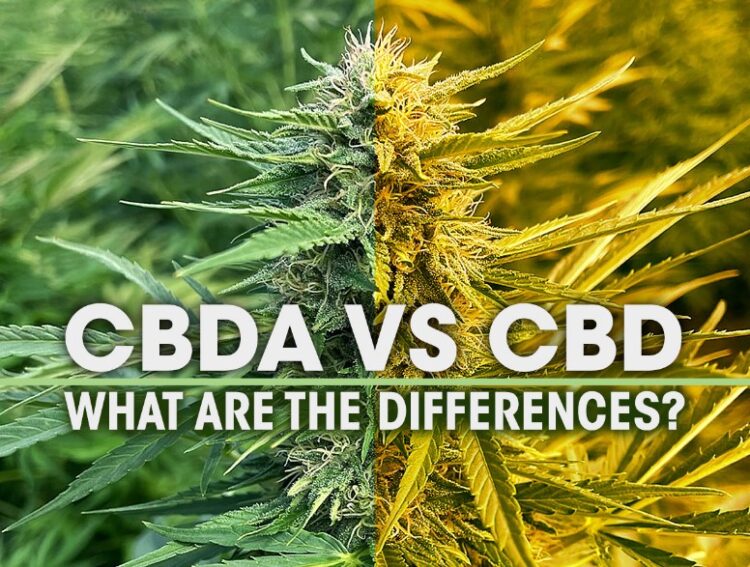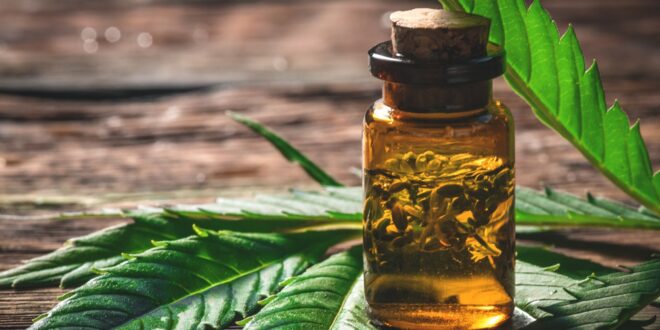CBD and CBDA are the two most useful cannabinoids, but many people get confused between the two.
There are differences in how they work, how they interact with the body, and what they are made of chemically. Knowing about both cannabinoids will help you choose which one benefits you more, especially if you are fixing to buy one of the products that have both cannabinoids in it.
Not sure how to begin learning about CBDA vs CBD? Don’t worry, we are here to help you. Read on to learn the differences between CBDA and CBD.
Chemical Composition and Formation
CBDA and CBD are both types of phytocannabinoids, which are a group of chemical compounds that are used in medicine. They are formed when certain compounds on the surface of the cannabis plant, the trichomes, oxidize.
CBDA is the naturally occurring compound on a freshly harvested cannabis plant. CBDA is made into a new compound by drying, decarboxylating, and heating it. This new compound is not acidic and has a different structure than CBD. The process of decarboxylation is what makes CBD and CBDA different from each other chemically.
When CBDA is heated, carbon dioxide is released, resulting in the lack of the carboxylic chain in the CBD, leaving it in its non-acidic form. This is what makes CBD the preferred choice for medical purposes, as it has shown to have great medicinal value.
It is of utmost importance to read more to attain a detailed comprehension of the different types of phytocannabinoids available and to determine which option is most fitting for your individual needs.
Potential Health Benefits

CBDA and CBD both refer to cannabinoids found in cannabis plants like hemp and marijuana. They have remarkable potential health benefits, though they vary slightly in their effects. Read on to learn about their health benefits.
CBDA Anti-Inflammatory Properties
Due to its strong anti-inflammatory properties, CBDA can reduce pain, inflammation, and nerve pain. CBDA has also been found to have antibacterial, antifungal, and anti-cancer properties. This makes it a great choice for those looking for powerful natural remedies.
CBDA is not easily absorbed through the skin or digestive tract when applied topically or taken orally. In order to reap CBDA’s full benefits, it must be heated to activate its effects and allow it to become more absorbable.
CBDA Nausea and Vomiting Treatment
CBDA, or Cannabidiolic Acid, is a compound found in hemp and cannabis plants that can be beneficial in the treatment of nausea and vomiting. But, it is not as widely studied and available as CBD or cannabidiol.
CBDA, when extracted from the plant, is in its acidic form and requires some processing to convert it into CBD. CBDA has anti-inflammatory properties. This makes it an ideal treatment for nausea and vomiting, in addition to its calming effects on the body.
CBDA could be just as good as CBD for treating conditions like nausea and vomiting. This is because it can work with the endocannabinoid system to reduce inflammation. But more research is needed to find out the full range of CBDA’s benefits and whether it can help treat more serious illnesses.
CBDA Anxiety and Depression Reduction
CBDA has anti-inflammatory and pain-relieving effects. This suggests that it could help reduce anxiety and depression. CBDA has also been linked to reducing nausea and vomiting, stopping seizures, and making people feel less sad or anxious.
Research is showing that CBDA may be especially beneficial for treating anxiety and depression. This is due to its anti-inflammatory and analgesic effects.
CBD Pain Management

When using CBD to treat pain, it is best to use CBDA in its raw form because it naturally reduces inflammation and relieves pain. CBDA can help to reduce pain and swelling. This, in turn, can help to reduce the need for pharmaceutical drugs.
Moreover, CBDA has been known to provide relief to those with muscle pain, joint pain, and general discomfort. As a result, pairing CBD with CBDA is an effective and natural method of treating pain and inflammation.
CBD Epilepsy Treatment
CBD is a common form of cannabidiol used for medical treatments related to epilepsy. It is highly effective at helping to reduce seizures and is generally well-tolerated in most patients with epilepsy.
Ultimately, CBD has evidence-based benefits in treating epilepsy, and also it may offer potential additional therapeutic benefits.
CBD Neuroprotective Effects
CBD’s neuroprotective effects have been seen in studies done on animals, and it may be helpful for conditions like:
- Alzheimer’s Disease
- Parkinson’s Disease
- multiple Sclerosis
CBD is being tested in clinical trials as a way to treat neurodegenerative diseases, and early results look good. Ultimately, the choice is ultimately up to the user, and depending on the desired effects, different levels should be taken.
Bioavailability and Formulations
CBDA and CBD are both compounds found in the hemp plant, but they have distinct differences. When referring to bioavailability, the body absorbs CBDA more efficiently than it does CBD, and preliminary studies state that the bioavailability of CBDA could increase up to 10 times.
CBDA can also be converted into CBD, actually making it easier to achieve higher concentrations of CBD in formulations. CBDA is non-psychoactive, so it doesn’t have the same effects as CBD when it comes to pain relief and other medicinal applications.
Furthermore, CBDA may have additional therapeutic effects due to its anti-inflammatory and anti-nausea properties. While the use of CBDA in formulations is still relatively new, its potential beneficial impacts on formulations can’t be overstated.
Many believe that the bioavailability and range of use cases that CBDA offers make it a promising alternative to CBD for those looking to optimize the effectiveness of their formulation.

A Guide to the Difference Between CBDA vs CBD
Having the knowledge of the difference between CBDA vs CBD can be beneficial to any individual looking to incorporate hemp into their life. CBDA has a unique set of health benefits and abilities that CBD does not have due to the special acid from the plant.
It is highly recommended that you conduct thorough research to determine what suits you best. You can also try to distinguish between CBDA and CBD on your own and experience the immense satisfaction it can provide.
So, try them out today and experience the benefits yourself!
To explore further informative topics, we invite you to browse through the other sections of our website.
 Hi Boox Popular Magazine 2024
Hi Boox Popular Magazine 2024



